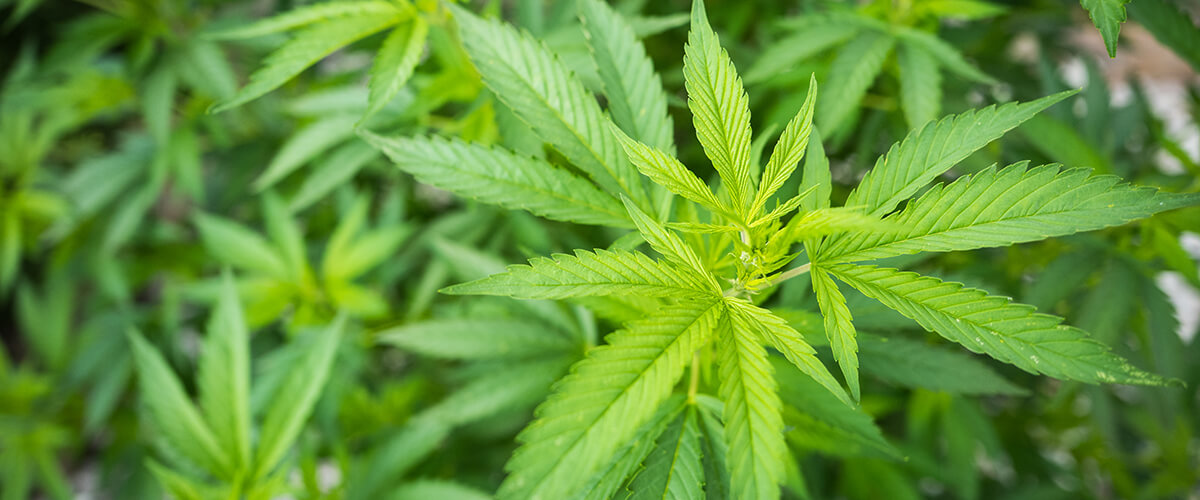[vc_row][vc_column][vc_column_text]
Three years after accepting applications for research-grade marijuana growers, the agency says it will finally take action on the more than 30 submissions it’s received.
The Drug Enforcement Agency (DEA) on Monday announced that it is finally moving forward on expanding the number of federally approved marijuana growers for scientific and medical research.
“DEA is making progress in the program to register additional marijuana growers for federally authorized research, and will work with other relevant federal agencies to expedite the necessary next steps,” DEA Acting Administrator Uttam Dhillon said in a statement.
“We support additional research into marijuana and its components, and we believe registering more growers will result in researchers having access to a wider variety for study.”
The timing of DEA’s efforts to approve growing applications remains uncertain.
Due to what the agency describes as an “unprecedented” volume of inquiries, DEA in the Federal Register said it is first necessary to develop new regulations to govern its marijuana research program before making decisions on the pending applications. DEA also said it will open a public comment period for applicants and the general public to provide feedback on the proposed rules.
“DEA intends to propose regulations in the near future that would supersede the 2016 policy statement and govern persons seeking to become registered with DEA to grow marihuana as bulk manufacturers, consistent with applicable law,” reads the notice.[/vc_column_text][/vc_column][/vc_row][vc_row][vc_column][vc_single_image image=”298099″ img_size=”730×305″][/vc_column][/vc_row][vc_row][vc_column][vc_column_text]
Forced Into Action by Lawsuits and Bipartisan Pressure
The announcement arrives only weeks after a federal appellate court gave DEA 30 days to respond to a lawsuit claiming the agency has blocked marijuana research. Monday’s notice came just two days before that critical deadline.
It has been more than three years since DEA said it would open up the availability of research-grade marijuana growing licenses. The University of Mississippi has been the sole recipient of a government license to grow marijuana for federally sanctioned research for more than four decades. The limited supply has delayed research efforts for years, and the quality of the crop produced by Ole Miss has been criticized.
In a notice of applications published in the Federal Register on Tuesday, the agency acknowledged “the need to move past the single grower system and register additional growers.”
Since opening up the application process for interested cannabis manufacturers, DEA has received 33 submissions. None of them have been approved.
For years, dozens of federal lawmakers have sought answers on the approval holdup. Earlier this year, 30 Republican and Democratic lawmakers demanded that the Justice Department and DEA process the applications to grow research marijuana.
“I am pleased that the DEA is moving forward with its review of applications for those who seek to grow marijuana legally to support research,” U.S. Attorney General William Barr said in a statement. “The Department of Justice will continue to work with our colleagues at the Department of Health and Human Services and across the administration to improve research opportunities wherever we can.”
Despite being legal in 33 states, marijuana remains a Schedule I drug under federal law. That designation puts significant limitations on medical and scientific research efforts.
Approving additional research-grade marijuana growers would help eliminate an enormous barrier to cannabis research. It would also provide researchers with a wider variety of cannabis to study.
“This should facilitate research, advance scientific understanding about the effects of marihuana, and potentially aid in the development of safe and effective drug products that may be approved for marketing by the Food and Drug Administration,” the agency said.
The notice from DEA also announces that growers and processors of hemp that contains no more than 0.3 percent THC are no longer required to register with the agency since hemp was made federally legal with the passage of the 2018 Farm Bill. It also cleared the air around hemp-derived cannabidiol (CBD) products by confirming they are lega.
Latest Cannabis Industry News
Check back into our news feed regularly for the latest updates on the rapidly growing cannabis industry.[/vc_column_text][/vc_column][/vc_row]






